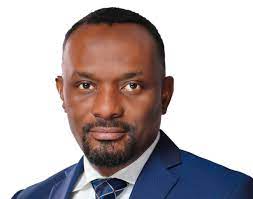The Nigerian Investment Promotion Commission (NIPC) on Thursday reported that foreign investment inflows into Nigeria grew to $23.30 billion in 2021, from $16.74 billion recorded in 2020, representing about 39 percent more than the value tracked in 2020.
Official figures released by the Commission on the 2021 investments, showed that the increase in value of investment inflows represented an indication of the growing confidence of investors in government’s efforts to improve the national investment space.
The figures further reflected that the top five states, by value of investments, were Lagos State, with $8.7 billion, Bayelsa State, $3.6 billion; Delta State, $2.9 billion; Akwa Ibom State, $2 billion; and Adamawa State, $1 billion.
An analysis of the report based on sectoral contributions indicated that the manufacturing sector had the highest number of projects (20) as well as the highest value, $10.5 billion (45 percent); Construction accounted for 16 percent, while electricity, gas, steam and air conditioning supply attracted 13 percent. Also, Information and Communication sector recorded 12 percent while mining and quarrying accounted for 9 percent of the investment inflows during the year under review.
The Federal Government projected an investment size of N348.1 trillion in its national development plan 2021 – 2025. The government is expected to provide N49.7 trillion or 14.3 percent, while the private sector would provide the balance of N298.3 trillion or 85.7 percent.
Speaking at a media parley in Abuja on the investment inflows, the Acting Executive Secretary of NIPC, Emeka Offor, said the commission had begun the process of developing a strategic plan with a focus on the national development plan sectors.
The Executive Secretary explained that “critical to this strategy is the profiling of the opportunities in each State as well as sustaining the engagements with the sub-national governments.”
In 2022, it is expected that there would be some marginal upward flow in global foreign direct investment as long as the world sustains the rate of adaptation to the ‘new normal’, governments further relax the restrictions and allow a freer cross borders movement while enforcing social distancing and intensifying campaigns for vaccination coverage as well as improving therapies to bring local transmission of COVID to tolerable levels across the world.
Offor recalled that over the past six years, the government had been implementing sustained reforms on the bureaucratic processes and procedures that border on doing business in the country.
He spoke on the need for all hands to be on deck to ensure that Nigeria attracts the quantum of investment required to stimulate sustainable socio-economic development.
Commenting, the Chairman of the NIPC governing council, Dr. Babangida Nguroje, solicited the support of the media in the coverage and reportage of the commission’s activities as part of its efforts to continue to create positive image for the country.






